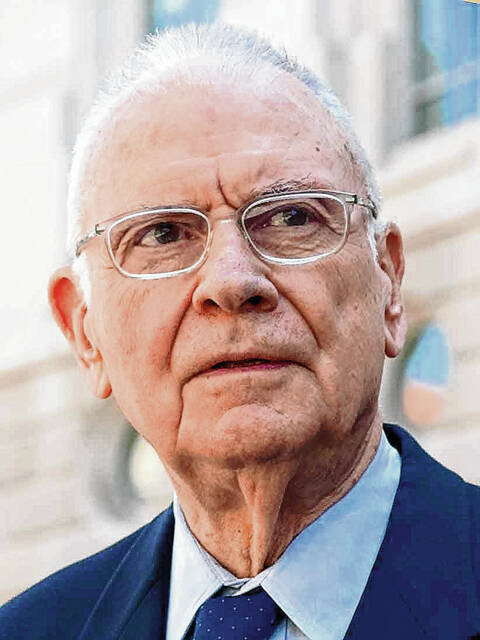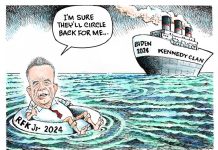Lee Hamilton
For the Republic
The North Atlantic Treaty Organization is the largest peacetime alliance in the world and has been arguably the most successful such alliance in history. It has had remarkable success in achieving its basic goals: containing Soviet expansion, checking the rise of nationalism and helping integrate Europe.
It provides a model for multinational cooperation, something we desperately need in today’s complex and dangerous world. And it has shown an admirable ability to adapt to changing needs and circumstances.
Three decades ago, with the collapse of the Soviet Union, it was possible to think NATO had outlived its basic mandate. But it found new and important responsibilities in combating ethnic violence and civil war, as in the former Yugoslavia, and countering terrorism. It maintains an array of peacekeeping and training activities in Europe, the Mediterranean, the Middle East and Africa.
Today, the crisis over a possible Russian invasion of Ukraine presents new challenges to the alliance while reinforcing the fact that NATO is as relevant as ever. It is essential to the security of our allies in Europe; and because their security is closely tied to our own, it is essential to the United States.
Today, NATO includes 30 member nations, three of them former Soviet republics: Estonia, Latvia and Lithuania. It also claims partner relationships with nearly 20 European countries. NATO calls its partnership with Ukraine one of its “most substantial” and says cooperation has increased since 2014, when Russia invaded Ukraine and seized Crimea.
Ukraine has expressed interest in joining NATO. Russian leader Vladimir Putin, who views Ukraine as part of “historical Russia,” portrays that prospect as an existential threat. With an estimated 100,000 troops massed near the Ukrainian border, Russia is demanding a guarantee that NATO won’t let Ukraine join.
The threat of a Russian invasion of Ukraine poses a real problem for NATO. President Joe Biden said recently “there are differences” among alliance members about how forcefully to respond, depending on what Russia does. Putin is likely to try to exploit those differences. The best way to resolve this crisis, of course, is through tough, clear-eyed diplomacy, with a clear message that Russia will face consequences if it invades. But it’s harder to negotiate from a position of strength when all your allies may not be on the same page.
NATO has achieved remarkable success in maintaining peace and security throughout its 72-year history. It has demonstrated, probably better than any other organization, the importance of multinational cooperation. But as the Ukraine crisis shows, its challenges are far from over.




